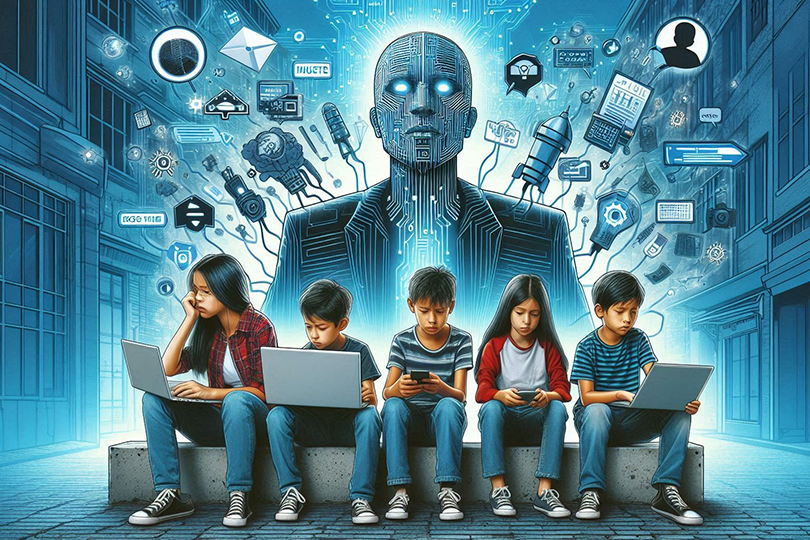By James P. Steyer and Kathy Hochul
America’s youth are facing an unprecedented mental health crisis—not only fueled by academic pressures or peer pressure but also exacerbated by an increasingly complex and demanding digital environment. From social media algorithms that capture their attention to a culture of pressure that may make them feel they are never enough, our children are being pulled in countless directions. The cost? Their mental health.
A new study conducted by the Center on Digital Wellbeing at Harvard Graduate School of Education, Indiana University, and Common Sense Media paints a grim picture. More than a quarter of American teens suffer from burnout—a term previously used to describe overwhelmed professionals. Today, it is a reality experienced by millions of children who are just trying to balance school, friendships, parental expectations, and their futures.
Warning signs were clear. Last year, U.S. Surgeon General Dr. Vivek Murthy issued a detailed advisory on youth mental health, addressing academic, financial, and societal pressures facing teens, which have contributed to rising feelings of loneliness. In fact, most teens today feel more disconnected from their peers than they did twenty years ago.
This crisis requires us to look beyond traditional awareness campaigns. While open dialogues about mental health are important, they are not enough. We must address social pressures—many of which are worsened by the tools our kids use for hours each day. Social media platforms amplify kids’ anxieties about appearance, achievement, and even their activity levels, with three-quarters of teens reporting these platforms exacerbate their worries about how they look and how they are perceived.
But the issue goes deeper than just screen time. As Harvard researchers point out, it involves a culture that glorifies hard work. According to the survey, 53% of teens feel immense pressure to meet their goals, while 56% worry about not having a clear plan for their future. These are not just academic concerns but reflect a broader societal problem where productivity is valued more than well-being. Even the concept of self-care is often seen by teens as unproductive or something they do not have time for.
We cannot allow this situation to continue. New York is already leading the nation in tackling the digital and mental health crisis with landmark legislation like the “Stop Advertising Addiction to Kids” (SAFE) Act and child data privacy laws. Technology must be used to empower the next generation—not trap them—and our policies must reflect that. Digital platforms can be part of the solution, but only if we hold the tech sector accountable for its role in this crisis.
Teens want to live in a world where their mental health is prioritized and look to their parents, teachers, and policymakers to create a healthy environment both online and offline. This means encouraging self-care practices like getting outdoors, engaging in creative activities, and making time for rest and sleep—as New York has done with initiatives like the “Unplug and Go Outside” campaign. Teens who engage in these activities report lower burnout rates, but barriers—such as limited time or constant productivity pressures—prevent many from enjoying these simple, refreshing activities.
We must also support our schools and local communities in meeting this challenge. Implementing thoughtful policies on smartphone use in classrooms and increasing access to mental health resources is more important than ever. In New York, we are committed to expanding access to these services, but prevention must be part of the equation. This means providing spaces where teens can focus on friendships, creativity, and self-expression without feeling constant pressure to perform or conform.
As we observe World Mental Health Day, this is not just a call to action for tech companies or legislators but a call to all of us. We must empower the next generation and help them navigate a world changing faster than ever before. Our youth’s future depends on breaking the cycle of mental exhaustion and restoring balance.
James P. Steyer is Founder and CEO of Common Sense Media.
Kathy Hochul is the 57th Governor of New York State.






Comments